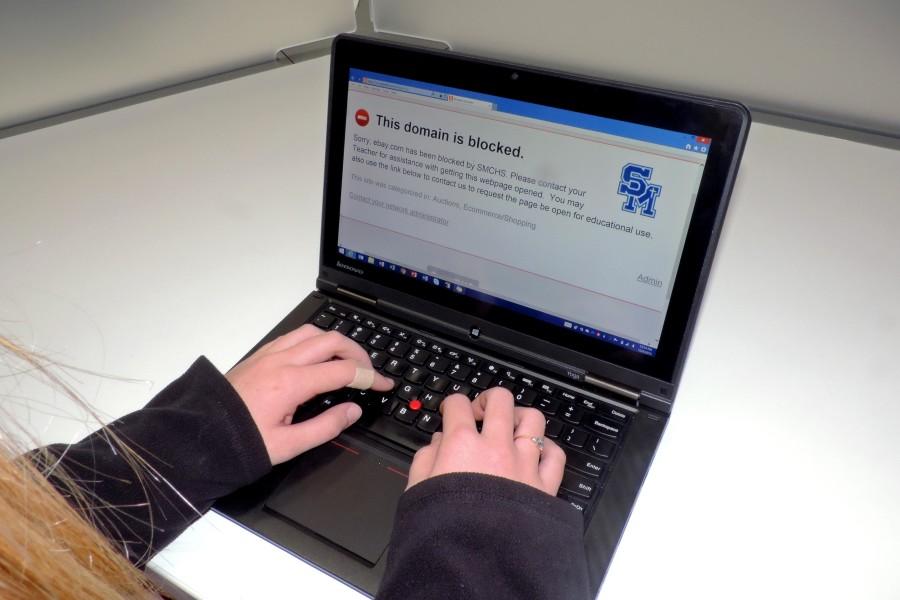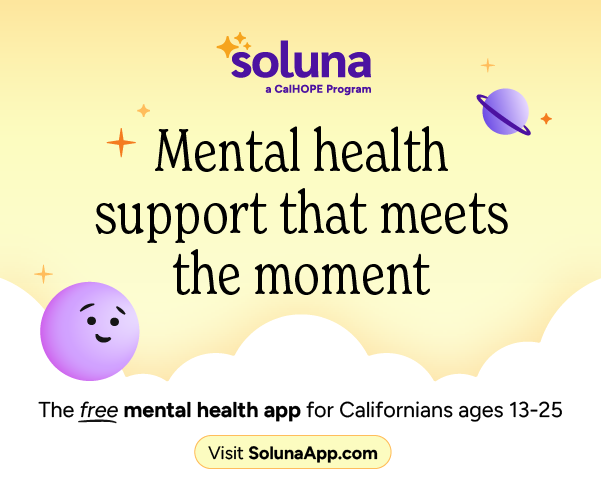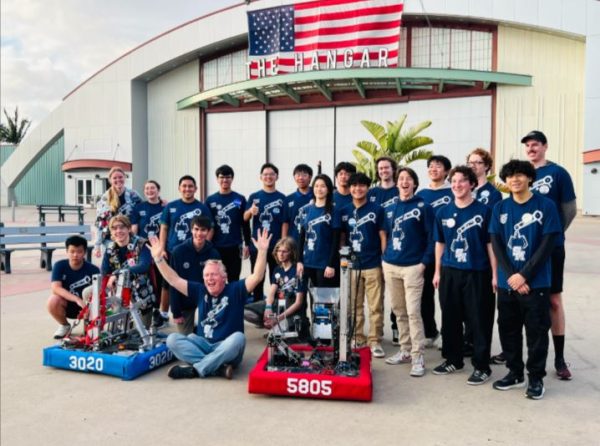Stop the block
SMCHS students are sick of seeing the red box that informs them “This domain is blocked.”
A student attempts to open ebay.com only to find that it’s blocked because it’s classified under “Auctions” and “Ecommerce/Shopping.”
Open the laptop? Check. Insert topic of research in search engine? Check. Pray that the sites you need aren’t blocked? Check. Click on first site, which guarantees most information on topic, and have it open? Not check.
For SMCHS student using their tablet for class research, it’s most likely that they have undergone that routine at least once in their tablet lifetime.
School policy states using any social media use such as Facebook and Twitter shall be limited to employees directly related to the communications, advancement and admissions offices and have prior written approval from administration to promote the school and/or events.
There is a common misconception that the IT department is responsible for such regulations, but the actual controlling power is the Diocese of Orange. Greg Dhuyvetter, Superintendent of Schools of the Diocese of Orange, is in charge of all Catholic schools in Orange County.
“We all know that people sometimes use good tools for bad reasons, so the primary policy is to teach students to use things well because they can make their lives better,” Dhuyvetter said.
Limiting site accessibility for students has become an issue, as conducting online research is crucial for classes such as history, Model United Nations and English, where outside sources are not only encouraged, but sometimes necessary for a paper, project or presentation.
“It’s frustrating when I know that a certain website has really good material like pictures, diagrams, infographics, etc. and it’s blocked,” said sophomore Rachel Kim. “[It’s frustrating] to think my paper could be that much better if I was able to get access to those news agencies websites that are blocked.”
Junior Cassiani Kateyiannis agrees with Kim that the quality of homework or class work decreases when students aren’t capable of attaining such sites because they are blocked.
Kateyiannis remembers a time in religion class when she and her classmates were asked to create new song lyrics that applied to the topic they were studying based on a current popular song. The small task proved to be more complicated than she thought.
“It’s something as simple as looking up a song lyric and I can’t even see what the words to the original song are,” Kateyiannis said. “When they block websites, then you can’t do good research, which leads to not as good of a grade.”
It’s not just blocked information sites that infuriate the students, it’s blocked blog web pages, which can offer help on a new perspective too.
“Just because [a website hosts] a blog doesn’t necessarily mean that it should be blocked,” Kim said. “We should be able to read other people’s opinions. This helps [you] to create your own. You can’t really grow as a person if you are not open to looking at new ideas and perspectives.”
Other students, like senior Tony Smith*, have found ways around these certain blocked sites by hacking their way in to them. Smith uses his hacking skills mostly to get around Class Policies or to hack into certain websites.
“If you give a kid a computer and say, ‘You should never go on this three sites,’ then the first thing they are going to do is go on those three sites,” Smith said. “Ninety-nine percent of the time if you give them the computer they are going to follow the right thing to do because they have a moral code. If we restrict everything then they are going to want go on all the bad sites.”
Kim, Kateyiannis and Smith all comprehend that there is a need to block certain sites, but offer a compromise: proposing that instead of blocking entire sites, that inappropriate words on sites be blurred or blocked.
“Sometimes I wander off and try to go shopping for something, and, when I realize it’s blocked, I’m like, ‘Well, there’s a reason why these are blocked’ and I get back to my homework,” Kim said. “It’s okay to have sites like Forever 21 blocked, but it’s not okay that they have a news informative or useful blog sites blocked.”
*name changed for privacy request










